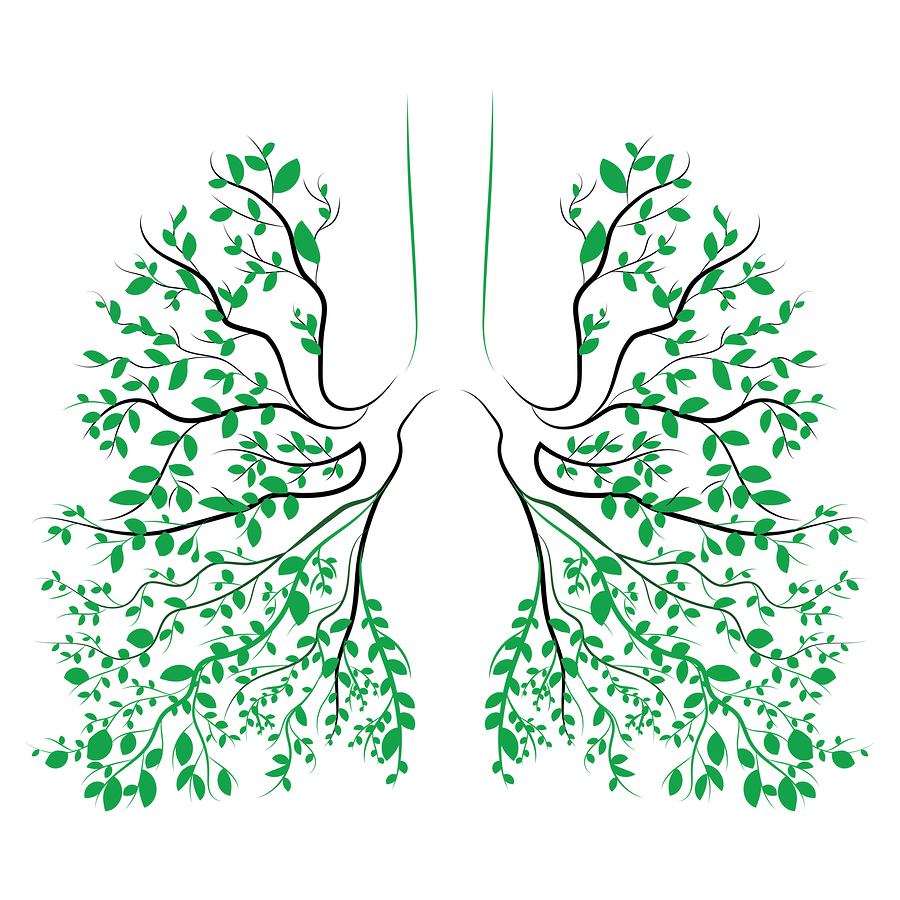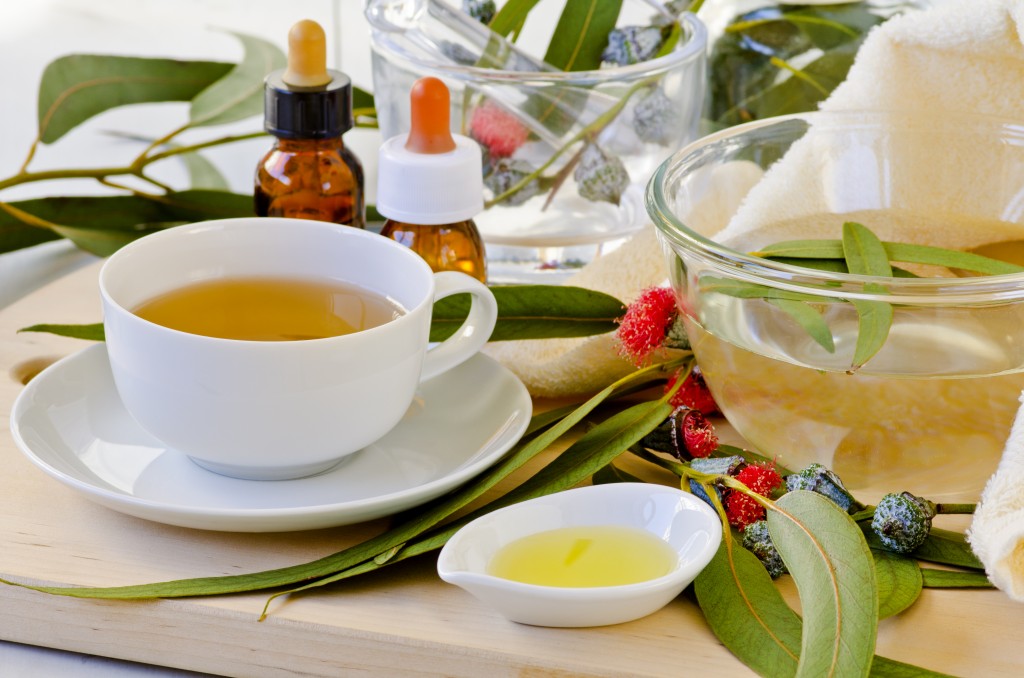- Make It Yourself Lavender Heart-Shaped Bath Bombs!
- 20 Things You Never Knew About “Down There”
- 12 Best Foods For Those Suffering From Arthritis Pain
- 12 Personal Hygiene Mistakes Almost Everyone Makes (Mom Never Told You About #4!)
- 15 Medicinal Plants And Herbs From The Cherokee People
- 12 Mind-Blowing Benefits Of Drinking Coconut Water During Pregnancy
- 12 Outstanding Winter Foods That Won’t Fatten You Up Like A Christmas Turkey
15 Amazing Herbs to Support This One Vital Organ
Often times, it is all too easy for us to take our bodies for granted, until they fail or have serious problems. Even though everyone knows that our lungs are super important, we don’t give them much thought until we have difficulty breathing.
Did you know that lungs not only provide us with life giving oxygen, but that they also filter out small blood clots?
Even for those of us who have had lung problems in the past and try to remain conscious of our health by avoiding smoke, we still don’t take into consideration vitamin A deficiencies, over the counter cold medications, or exposure to chemicals and the damage that these things can cause to our lungs. Exposure to chemicals causes common lung conditions such as emphysema, asthma, bronchitis, tuberculosis, pneumonia, even lung cancer. In fact, the American Lung Association says that lung cancer is the #1 cancer killer in America today.
Luckily for us, there are plenty of herbs that can be used to encourage healthier lung function. These herbs aid the mucous membranes in the smoother exchange of oxygen and carbon dioxide, protect the membranes of the lungs, stimulate tissue secretion, as well as improving the operation between the brain and the lungs for better blood circulation in the lung tissues.
If all of that is hard to take in, here’s the bottom line: the following 15 herbs help to support lung function so that you can breathe easier.
Keep reading and find out what you can do to improve and support your lungs.
1. Lobelia Inflata
This ancient herb has been used as a means of stopping asthma by the people of the Appalachian Mountains for untold ages. Lobelia is also given to race horses to help them breathe more deeply before they race. Lobelia is thought by some to be one of the most important herbs on the planet. In tests, extract from lobelia was shown to have positive effects in the treatment of multidrug- resistant malignant tumor cells. The alkaloid in lobelia, called lobeline, thins mucus as well as breaks up congestion. Lobelia also stimulates your adrenal glands to release epinephrine, which relaxes the airways and allows you to breathe easier. Lobelia relaxes and soothes muscles, which is why you will find this herb in almost all cough and cold remedies.
2. Mullein
Mullein is a favorite natural remedy to help fight colds, flus, emphysema, and bronchitis. The flowers and leaves are both used in most remedies. Herbal experts state that it’s the saponins that soothe bronchial spasms and allow it to clear out sticky phlegm. Mullein is also a mild sedative and fights inflamed nerves along the respiratory tract. One study done in 2013 found that mullein has anti-hyperlipidemia and antitumor compounds.
3. Oregano
Oregano has tons of nutrients and vitamins that are helpful to the immune system, but its active ingredients are rosmarinic acid and carvacrol, both of which are natural decongestants and histamine reducers. These two compounds have super positive benefits on the lungs as well as the nasal passage airflow. Oregano oil is believed to fight off the dangerous pathogen staphylococcus aureus, better than most antibiotic treatments. In fact, oregano has so many health benefits that everyone should keep some dried oregano and oregano oil in their house at all times.
Continue to Page 2
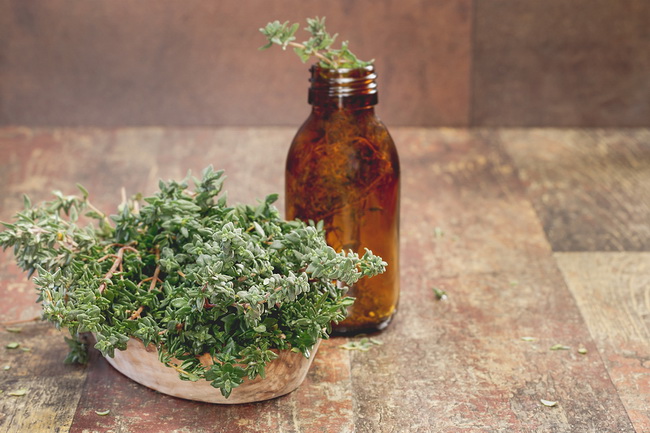
Photo credit: bigstock.com
4. Licorice Root
Licorice root softens and moistens irritated or inflamed mucous membranes and reduces the spasms that trigger coughing fits. One study showed that one flavonoid in licorice root, licoachalcone A, contains antimicrobial and anti-inflammatory compounds that can improve serious lung injuries and can prevent the growth of cancer cells.
5. Thyme
Thyme produces antiseptic essential oils which are very potent fighters when it comes to relieving chest congestion. Thyme oil is also a natural antibiotic and has anti-fungal properties as well. Using thyme as a tea can kill bacteria and viruses. Breath in the steam when making this herb into tea to get your lungs all the health benefits thyme has to offer and to stop bacteria from taking hold inside your lungs. Thyme has been used as an effective lung remedy since time immemorial, so you can feel good about using it even in today’s modern world.
6. Gingko Biloba
This is perhaps one of the most highly researched herbs on the planet. Gingko is used to treat many health problems but it also has beneficial effects on the lungs. One study done in 2012 showed that dogs that had undergone hypothermic cardiopulmonary bypass that were given an extract of gingko biloba had systematic inflammatory responses in their lung tissue, which enabled them to heal more quickly.
Continue to Page 3
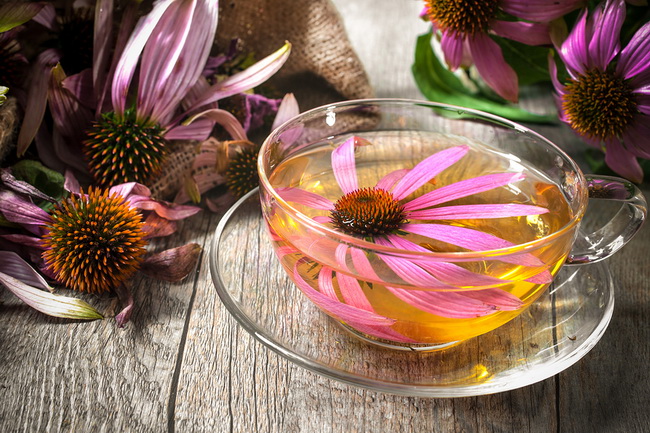
Photo credit: bigstock.com
7. Osha Root
Native to the Rocky Mountains, the root of this herb has been used by Native Americans for hundreds of years for lung support. The roots of this plant contain camphor, as well as other compounds, which make it one of the best lung supporting herbs that can be found anywhere. Osha root increases blood circulation to the lungs, which makes it easier to take deep, full breaths. The root of this plant, while not an actual antihistamine, does produce similar effects and can calm lungs that have become irritated or inflamed.
8. Echinacea
Although you might think that this flowering herb is only for improving the immune system. This anti-microbial herb is known to active white blood cell productions and fight off pathogenic microorganisms. Studies have shown that Echinacea can reverse infection caused by the rhinovirus in humans and improve the secretions of mucous. Some studies have also shown that Echinacea can also reduce the amount of mucous produced by the lungs during cold or flu infection.
9. Coltsfoot
Well-known for its healing benefits, coltsfoot is a potent herb that is very beneficial to the lungs. Grown throughout Europe and Asia, this herb is an excellent remedy when it comes to fighting common colds, whooping cough, and other lung problems. This herb can relieve the symptoms of bronchitis, heals mucous membranes, and is well-proven to be a powerful expectorant. Coltsfoot also has strong anti-inflammatory effects that can help people recover more quickly from infected and/or irritated lungs. Tea made from this herb will combat emphysema, coughing, and asthma attacks caused by allergic reactions.
Continue to Page 4
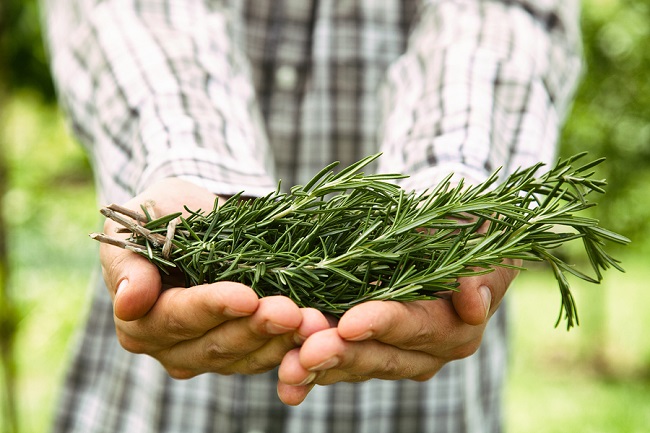
Photo credit: bigstock.com
10. Rosemary
Very similar to Echinacea, this sweet smelling herb is loaded with anti-microbial compounds that have antibacterial, anti-fungal, and antiseptic properties. Rosemary has long been used by herbal practitioners for the relief of the symptoms from sore throats, colds, coughs, flu, chest infections, and bronchitis. Rosemary contains a substance called carnosol, which in a 2011 study was evaluated for its anti-lung cancer properties. Scientists in Chicago, Illinois, found that carnosol had selective toxicity towards cancer cells while leaving healthy cells alone. In studies done with animals, rosemary had absolutely no side effects, even when given in high doses.
11. Slippery Elm
Slippery elm has been used by Native Americans for sore throats and various types of respiratory problems for hundreds, perhaps thousands, of years. Slippery elm has an almost unbelievable blend of diuretic, laxative, emollient, antiseptic, anti-inflammatory, mucilage, and expectorant compounds when are super effective in helping the lungs. Slippery elm fights bronchitis, stops bleeding in the lungs, and stops nagging coughs. It can soothe the entire respiratory system in general, providing much needed relief. Slippery elm is also great for those who suffer from asthma, by softening the mucous membranes in the nose. This herb’s anti-allergenic and antiseptic compounds have an overall refreshing and calming effect that is useful for anyone with a pair of lungs.
12. Irish Moss
This is a simply amazing herb that is still relatively unknown. Irish moss can treat a wide variety of respiratory illnesses, including pneumonia, the common cold, and flu. In fact, Irish moss is so effective that it is often the base of many prescription drugs used for treating bronchitis, pneumonia, and other lung problems. Irish moss is a great source of iodine, magnesium, and calcium. It also has anti-viral compounds that can help fight influenza B viruses and the mumps. This herb has been shown to have anti-inflammatory and expectorant compounds. Although this is called Irish moss, Chinese herbalists have been using this herb to relieve dry coughs, and dissolve catharrs, which are responsible for the congestion that typically causes coughs.
Continue to Page 5
13. Eucalyptus
Perhaps the fastest growing tree on the planet with more than 70 varieties, this tree has many medicinal purposes but perhaps none more well-known than for its ability to treat respiratory problems such as meningitis, the common cold, influenza, sore throats, sinusitis, and bronchitis. The leaves of this tree have powerful expectorant, analgesic antiseptic, anti-inflammatory, decongestant, antiviral, and antispasmoic compounds, all of which are super beneficial to the lungs.
The leaves from this tree also contain a substance called cineole. This ingredient is a powerful agent that can fight various types of respiratory problems. One study found that consuming 200 grams of cineole extract three times each day improved the symptoms of viral sinusitis. Another study in Spain found that Eucalyptus leaves owed their anti-inflammatory compounds due to its ability to inhibit the productions of nitric oxide.
14. Hyssop
Hyssop smells something like anise or licorice and is well-known for its beneficial effects on the respiratory system. This plant has powerful expectorant compounds that eliminate congestion caused by viral infections and other respiratory problems. Hyssop also has anti-inflammatory, antioxidant, and diaphoretic compounds known to reduce fevers and even act as a detoxifier. Hyssop is commonly consumed as a syrup and works well to relieve even the most stubborn cough. This plant has been used since ancient times and was often prescribed by health practitioners of old to cure everything from stomach aches, pleurisy, and asthma. Hyssop has strong antiviral compounds and relaxes the peripheral blood vessels.
SEE ALSO: Top 9 Herbs to Cleanse the Lungs
15. Cannabis
You probably didn’t expect to see cannabis on this list! The truth of the matter is that inhaling cannabinoid essential oils is one of the most effective anti-cancer methods available today. Study after study has shown that the cannabinoid receptors in specific genes stimulates the body’s natural immune response and reduces the ability of infection to spread. Vaporizing cannabis opens up airways as well as the sinuses because cannabis is a natural bronchodilator. Cannabis has even been used to treat and reverse asthma.
Herbs cannot be patented or owned, which is why there will never be a “cure” for anything that these plants can fix. Since every illness can have different root causes, it is important to understand them before relying on any one treatment or herb. Always consult your physician, naturopathic doctor, or herbologist before consuming any herbs, stopping any prescription medications, or consuming any herbal treatment program.
References:

